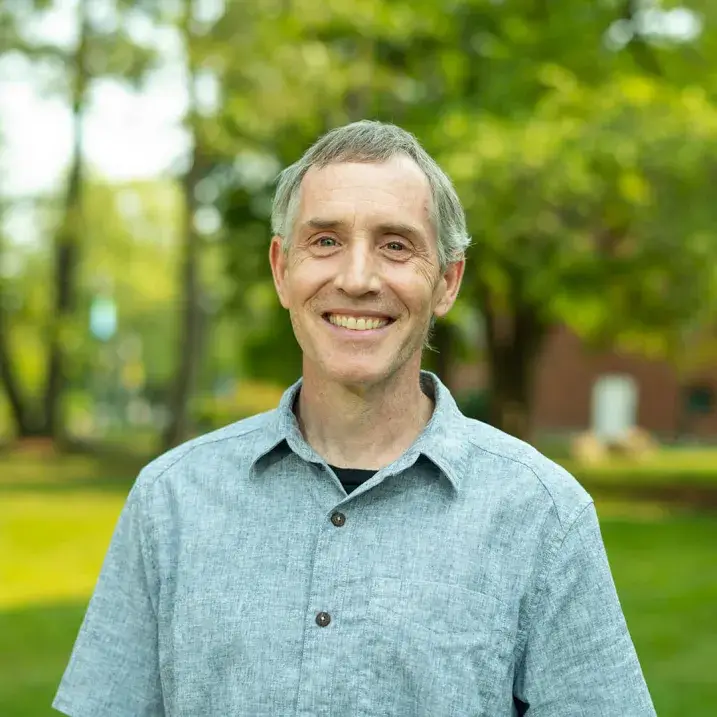Delehanty Hall, Room 308
Burlington, VT 05405
United States
- Ph.D., The University of Texas at Austin, 1993
JOURNALISTS: Need help scheduling an interview? Contact UVM media relations or search for a UVM expert.
Areas of expertise
Structural geology, earthquakes, tectonics, landslides and rockfalls, natural hazards, faults, photogrammetry, drone surveys, bedrock aquifers, applied geology, geology of Vermont.
BIO
I am a geoscientist interested in how the methods and principles of geology can be used to understand and solve some of the most pressing challenges facing human societies today. My students and I have a broad range of interests, including the evolution of earthquake-generating fault zones in New Zealand and California, the uplift of mountain ranges in Patagonia and elsewhere, the causes and consequences of large landslides and rockfalls in Vermont, and the spread of PFAS contamination in bedrock aquifers beneath local towns. Most of my work is field-based where I travel to carefully selected sites in Vermont and around the globe to learn as much as I can about the architecture and temporal evolution of geological features and landscapes. I also have expertise in the disciplines of continental tectonics and Earth deformation, and the application of UAS (drone) surveys, photogrammetry, and 3-D digital modeling to geologic problems. Check out the links listed on this page to see some examples and animations.
Links:
- New Zealand research highlighted by the American Geophysical Union
- Field investigation of a contaminated bedrock aquifer, Clarendon Gorge, VT
- Model of PFAS chemical contamination pathways neath Rutland Airport, VT
- Cotton Brook landslide landscape, Stowe, VT
- Time lapse of the Cotton Brook river delta, Waterbury Reservoir, VT
- Animation of folded geological layering, Clarendon Gorge, VT
- Digital geology in New Zealand
Publications
Awards and Achievements
Dr. Klepeis was elected a fellow of the Geological Society of America in 2011 and earned the prestigious Kroepsch-Maurice Excellence in Teaching Award at the University of Vermont in 2015. He has earned multiple Editor’s citations for excellence from a variety of international journals. He also is the recipient of numerous large research grants from the National Science Foundation to support his research in New Zealand, California, and Patagonia. Funding from FEMA, the FAA, and the State of Vermont supports his work on natural hazards and applied geology in Vermont. He has mentored and graduated over 24 graduate students and 47 undergraduate research students at UVM.
Bio
I am a geoscientist interested in how the methods and principles of geology can be used to understand and solve some of the most pressing challenges facing human societies today. My students and I have a broad range of interests, including the evolution of earthquake-generating fault zones in New Zealand and California, the uplift of mountain ranges in Patagonia and elsewhere, the causes and consequences of large landslides and rockfalls in Vermont, and the spread of PFAS contamination in bedrock aquifers beneath local towns. Most of my work is field-based where I travel to carefully selected sites in Vermont and around the globe to learn as much as I can about the architecture and temporal evolution of geological features and landscapes. I also have expertise in the disciplines of continental tectonics and Earth deformation, and the application of UAS (drone) surveys, photogrammetry, and 3-D digital modeling to geologic problems. Check out the links listed on this page to see some examples and animations.
Links:
- New Zealand research highlighted by the American Geophysical Union
- Field investigation of a contaminated bedrock aquifer, Clarendon Gorge, VT
- Model of PFAS chemical contamination pathways neath Rutland Airport, VT
- Cotton Brook landslide landscape, Stowe, VT
- Time lapse of the Cotton Brook river delta, Waterbury Reservoir, VT
- Animation of folded geological layering, Clarendon Gorge, VT
- Digital geology in New Zealand
Publications
Awards and Achievements
Dr. Klepeis was elected a fellow of the Geological Society of America in 2011 and earned the prestigious Kroepsch-Maurice Excellence in Teaching Award at the University of Vermont in 2015. He has earned multiple Editor’s citations for excellence from a variety of international journals. He also is the recipient of numerous large research grants from the National Science Foundation to support his research in New Zealand, California, and Patagonia. Funding from FEMA, the FAA, and the State of Vermont supports his work on natural hazards and applied geology in Vermont. He has mentored and graduated over 24 graduate students and 47 undergraduate research students at UVM.
Office Hours
308 Delehanty Hall Mondays and Wednesdays 9-10am
